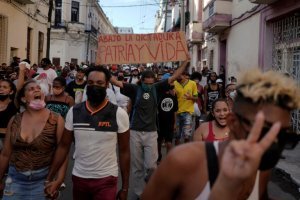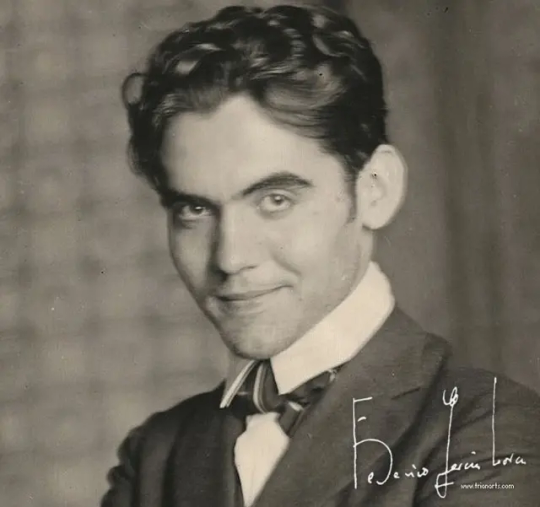#Julio Sánchez
Text
Esta valiosa conversación va desde el muchacho que cargaba cables y terminó haciendo el sonido en consola para la orquesta de Lucho Bermúdez, pasando por el DJ, el ingeniero y el productor de radio, donde además fue traductor y estuvo junto a los más grandes de la mitología del gremio sonoro. Andrés Recio nos contará pronto su paso al lado de Juanes en el momento de su explosión como artista global, Ricky Martin en su sonado regreso a los escenarios; Nelly Furtado reclamando uno de tantos Grammys y hasta Alessia Cara al despegue de su carrera. Además, ya son 23 años con 23 años al lado del laureado productor Julio Reyes Copello.
Recio hace ahora parte del equipo de management del notable productor salsero Sergio George, y tiene una vida entera por contar en el próximo episodio de tu podcast favorito.
#EnLaCasa 🎙 con Gabriel Posada.
0 notes
Text






BERLIN (2023-) | Netflix
#berlin series#berlin netflix#la casa de papel#berlin keila#berlin bruce#berlin roi#berlin cameron#camille polignac#alicia sierra montes#pedro alonso#berlin damian#michelle jenner#begoña vargas#Tristán Ulloa#julio peña fernández#Joel Sánchez#esther martinez labato#Álex Pina#Samantha Siqueiros#bleulone’s gifs
232 notes
·
View notes
Text

Photography by Julio Jaime Sánchez Verdú
113 notes
·
View notes
Text

25 notes
·
View notes
Text
Disponible en Acceso Abierto el número 15 (2022) del «Anuario Calderoniano» (ISSN: 1888-8046)
Mientras se encuentra en imprenta el número 16 (2023) del Anuario Calderoniano (ISSN: 1888-8046) —con una sección monográfica dedicada a «La escena en el teatro áureo y en el teatro isabelino» coordinada por Paula Baldwin Lind—, anunciamos que se encuentra disponible en Acceso Abierto (Open Access) el número 15, correspondiente al año 2022. Los materiales pueden consultarse y descargarse en…

View On WordPress
#Acceso Abierto#Acceso Abierto GRISO#Anuario Calderoniano#Calderón#Calderón de la Barca#Ciencia Abierta#David González Ramírez#Depósito Académico Digital de la Universidad de Navarra (DADUN)#Eduardo Torres Corominas#Iberoamericana Vervuert#Ignacio Arellano#José Julio Martín Romero#Literatura del Siglo de Oro#M.ª Manuela Merino García#Open Access#Open Science#Paula Baldwin Lind#Ramón Muñoz Sánchez#Revistas académicas#Revistas científicas#Revistas científicas de Humanidades y Ciencias Sociales#Revistas de impacto#Revistas indexadas#Siglo de Oro#Teatro cortesano#Teatro del Siglo de Oro#Universidad de Navarra
0 notes
Text
El 11 de julio de 2021 el pueblo de Cuba inició el inexorable fin de la dictadura
Por: Carlos Sánchez Berzaín
Nada detiene las protestas populares iniciadas el 11 de julio de 2021 en Cuba al clamor de “libertad”, “abajo el comunismo” y “no tenemos miedo”, con “Patria y Vida” la canción convertida en lema. La llama de libertad encendida el 11-J crece y pone en evidencia los “crímenes de lesa humanidad” de los detentadores del poder con “terrorismo de Estado”, la inviabilidad…

View On WordPress
#11 de julio de 2021#Autor Carlos Sánchez Berzaín#“Patria y Vida”#Cuba#dictadura#protestas#Represión
1 note
·
View note
Text
S2E4: "Floundering Around"
Appetizer Ingredients: Beef Shoulder, Fish Sauce, Canned Pumpkin
Entree Ingredients: Flounder, Yellow Plantains, Baby Bok Choy, Mini Watermelon
Dessert Ingredients: Plain Donuts, Tomatillos, Creme Fraiche
Judges: Aarón Sánchez, Amanda Freitag, Scott Conant
Chefs: Julio Lazzarini, Marc Spooner, Massimo Felici, Christine Campbell
#food network#chopped#Aarón Sánchez#Amanda Freitag#Scott Conant#Julio Lazzarini#Marc Spooner#Massimo Felici#Christine Campbell#Beef Shoulder#Fish Sauce#Canned Pumpkin#Plain Donuts#Flounder#Yellow Plantains#Baby Bok Choy#Mini Watermelon#Tomatillos#Creme Fraiche
1 note
·
View note
Text
Exposición “Sigue al Conejo Blanco”, Colectiva
Exposición “Sigue al Conejo Blanco”, Colectiva
Exposición Sigue al Conejo Blanco
Colectiva
30.03.2022
Instituto Superior de Arte
“En la cultura popular, el Conejo Blanco se ha convertido en un símbolo, donde seguir al Conejo Blanco describe el acto de seguir a algo o a alguien ciegamente, y cuya persecución desemboca en aventuras y descubrimientos”
Este fragmento pudiera contener en sí los conceptos curatoriales que forman esta…

View On WordPress
#2022#Agustín Hernández Carlos#Aldo Soler Pérez#Alejandro García#Alejandro Ortíz Pérez#Antonio Orta Sánchez#Ángel O Fernández Quintana (Andez)#Beatriz Fernández#Carlos Zorrilla Montes#Celia Mariana García Horta#Dayan Arce Rodríguez#Deylis Rodríguez Sabio#Frank Michel Johnson#Harold Ramírez#Héctor Onel Guevara#ISA#Jhonatan Moreno#Julio Sauri Bello#Leidy E#Lis Maily González Hernández#Maikel Armando Ladrón de Guevara#Mairosa Beltrán Fernández#María Fernanda Chacón Rivera#Marlon Riveron#Maykel Rodríguez Ricardo#Melisa Manguart González#Michel V Meulenert#Muestra Colectiva#Noslen Argilagos#Raúl Cué
0 notes
Text
1° FORO REGIONAL DE LA JUVENTUD - HUACHO 2022: "Perú hacia una Ley General de Juventudes"
1° FORO REGIONAL DE LA JUVENTUD – HUACHO 2022: “Perú hacia una Ley General de Juventudes”

View On WordPress
#1° FORO REGIONAL DE LA JUVENTUD - HUACHO 2022#Auditorio de la Universidad Nacional José Faustino Sánchez Carrión#Perú hacia una Ley General de Juventudes#Sábado 30 de Julio 2022
0 notes
Text
Esta es la imagen y algunos datos (O no) la “Historia” la pones tú ¡La tuya! ¿Lo harás?… ¿Recordando el Futuro y el lugar donde están los que fueron?
José Antonio "Chicho" Sánchez Ferlosio (Madrid, 8 de abril de 1940-Madrid, 1 de julio de 2003) fue un cantautor español, autor de una gran cantidad de canciones que, muchas veces, no llegó a grabar él mismo aunque sí lo hicieron otros intérpretes, como Rolando Alarcón, Joan Baez, Soledad Bravo, Víctor Jara, Quilapayún o Joaquín Sabina. Algunos de estos temas han pasado a formar parte de la tradición popular, como Gallo rojo, gallo negro, La hierba de los caminos, La Quinta Brigada o A la huelga.
«Cantemos como quien respira. Porque eso es la libertad, porque es decir que somos quienes somos, porque eso es el amor: respirar o cantar. Porque ambas cosas son la misma: Poesía» (Gabriel Celaya)

#José Antonio Chicho Sánchez Ferlosio (Madrid 8 de abril de 1940-Madrid 1 de julio de 2003) fue un cantautor español autor de una gran cantid#¿Historias cortas para no dormir?#¿Recordando el futuro desde un pretérito imperfecto?
0 notes
Text
Garro encabezó el acto por el Día de la Independencia en Gorina
#LaPlata #Institucionales | #JulioGarro encabezó el acto por el #DíadelaIndependencia en #Gorina
En el marco del 206 aniversario de la Independencia y tras la restauración de un emblemático mástil ubicado en Gorina, el intendente de La Plata, Julio Garro, asistió al izamiento de bandera y destacó la importancia de “estar unidos y trabajar juntos por un futuro mejor para el país”. La actividad tuvo lugar esta mañana en la intersección de las calles 139, 485 y Diagonal 6 con la presencia de…

View On WordPress
#Cooperativa de Obras y Servicios Públicos Consumo y Vivienda#COSEGO#Día de la Independencia#Escuela N° 92#Gorina#Heroínas#Ileana Cid#Josefa Tenorio#Juana Azurduy#Juana Moro#Julio Garro#La Plata#Macacha Güemes#Madre de la Patria#Manuela Hurtado y Pedraza#María Remedios del Valle#María Rosa Lazari de Solsona#Mariquita Sánchez de Thompson#mujeres#Remedios de Escalada
0 notes
Text

NERO. The end of the Julio-Claudian dynasty (Last Part)
January of 63, 1 year and a half before the terrible fire in Rome.
According to Tacitus:
"Nero welcomed with something more than mortal joy the birth of a daughter by Poppaea, Claudia whom he called Augusta, the same title having also been given to Poppaea."
After listing all the religious celebrations, spectacles, and distinctions that were made in the baby's honor, Tacitus says that the baby died four months later and adds "The emperor was as excessive in his grief as he had been in his joy."
Historian writes about the acts carried out by Nero after the fire. Measures to prevent fires and changes in the design of the city. According to Tacitus: "These changes which were liked for their utility, also added beauty to the new city."
And about of Domus Aurea:
He erected a mansion in which the jewels and gold were not so marvellous as the fields and lakes, with woods on one side to resemble a wilderness, and, on the other, open spaces and extensive views. -Tacitus

Domus Aurea- Digital reconstruction- Work by J.R CASALS -Digital Heritage
The conspiracy of the year 65
Tacitus writes in detail about a conspiracy to assassinate Nero and replace him with Senator Caius Piso; "planned by senators, knights, soldiers and even women; out of hatred of Nero as well as a liking for Caius Piso".
Historian also accounts that they planned assassinated Nero in the Villa that Piso had in Baiae "whither the emperor, charmed by its loveliness, often went, and where, unguarded he would enjoy the bath and the banquet." But Piso refused "to stain with an emperor's blood the sanctity of the home and the deities who presided over it."
They decided to carry out their plan in April, on a special day of games at the Circus, held in honor of Ceres.
The plan was that Scaevinus, approaching Nero as if to ask him something, would stab him once with his dagger, others would cover the wound with bandages to hide the blood and quickly carry him out of the circus; Another would lie to the audience by saying that the emperor was ill. They would then announce his "natural death" days later.
The day before the treacherous attempt, after a long conversation with Natalis, Scaevinus returned home and took from its sheath a dagger and complaining that it was blunted from long disuse, he ordered it to be sharpened on a stone to a sharp, shiny point; This task he assigned to his freedman Milicus. -Tacitus
The historian writes doubting whether Milicus was unaware of the conspiracy and became suspicious, or whether he knew it and was faithful until then, and imagining the benefits he would obtain by alerting the Emperor, he decided to betray Scaevinus.
Milicus went to the Servilian gardens, and, finding the doors shut against him, said that he was the bearer of important and alarming news. Upon this he was conducted by the gatekeepers to one of Nero's freedmen, Epaphroditus, and by him to Nero, whom he informed of the urgent danger; And showed the emperor the dagger -Tacitus
The story about the arrests and interrogations is too long. The investigation lasted weeks.
Tacitus writes that one of the conspirators, Natalis, during the interrogation was the first to give the names of everyone, including Seneca; And claims that Natalis was the only accused who denounced Seneca, while the others didn't mention him at all.
After being accused, Seneca decided to take his own life. According to Tacitus, he first drank the 'philosophers' poison' (hemlock) and then cut his veins while getting into a hot water bath exclaiming: “I offer this liquid as a libation to Jupiter Deliverer.”
Philosopher Seneca died on April 12th of the year 65. His wife was absolved by Nero.

'Death of Seneca' by Manuel Dominguez Sánchez, 1871
There were several executed, the majority committed suicide, many were exiled, others were pardoned. Tacitus accounts: "Nero rewarded with immunity the prompt information of Natalis. Milicus became rich with gifts and assumed in its Greek equivalent the name of Saviour."
The brief and curious explanation according to Suetonius:
It happened that a comet had begun to appear on several successive nights, something that was commonly believed to portend the death of great rulers. Concerned about this, and knowing from the astrologer Balbillus that kings used to avoid such omens with the death of some illustrious man, he resolved on the death of all the eminent men of the State; but with greater firmness and with some semblance of justice, after the discovery of a conspiracy.
But Tacitus, who wasn't exactly a fan of Nero, gives a very different explanation:
Nero summoned the Senate, addressed them in a speech, and further added a proclamation to the people, with the evidence which had been entered on records, and the confessions of the condemned. He was indeed under the lash of those who said that he had killed innocent men out of jealousy or fear. However, that a conspiracy was begun, matured, and conclusively proved was not doubted at the time by those who took pains to ascertain the truth, and is admitted by those who after Nero's death returned to the capital.
Nero on the stage

According to Suetonius:
While Nero was singing no one was allowed to leave the theatre even for the most urgent reasons. And so it is said that some women gave birth to children there. While many who were worn out with listening and applauding, secretly leaped the wall since the gates at the entrance were closed. Others feigned death so they could leave, and were carried out of the theater as dead on the way to their own funeral ceremony.
According Tacitus:
The Senate offered the emperor the "victory in song," and added the "crown of eloquence," that thus a veil might be thrown over a shameful exposure on the stage. First, he recited a poem on the stage; then, at the importunate request of the rabble that he would make public of all his accomplishments (these were their words), he entered the theatre, and conformed to all the laws of harp-playing.
For the Roman elite, theater was a thing of "unmanly Greeks" and the "vulgar entertainment of the plebs." So for them what Nero did was a shameful and scandalous action, and for the worse since the emperor was the artist, they were forced to attend these shows. But the plebs were delighted.
The Mystery of Poppaea


It seems strange to me that not even experts in the History of Ancient Rome, can tell us when exactly this empress died. "Someday in the year 65" everyone says.
About her death.
After the conclusion of the games Poppaea died from a casual outburst of rage in her husband, who felled her with a kick when she was pregnant. That there was poison I cannot believe, though some writers so relate, from hatred rather than from belief, for the emperor was desirous of children, and wholly swayed by love of his wife. - Tacitus
Tacitus acknowledges that Nero loved his wife and was desirous of children. And wrote about the happiness that Nero felt at the birth of his daughter and his extreme pain at her death, so such a violent attitude putting the life of who was going to be his second child at risk isn't credible. As most modern historians think, Poppaea probably died from complications of a miscarriage. Tacitus also accounts that Poppaea was not cremated "according to Roman custom but embalmed according to certain foreign customs" and that Nero was distressed by the loss of his wife and unborn child.
The last of the Dynasty

In the year 66 (or 65 ?) Nero, following the death of Antonia, became the last member of the dynasty.
According to historians, Antonia, the only surviving daughter of Emperor Claudius, his eldest daughter with his second wife, unjustly sentenced to death by the emperor.
According the official history: "Under false accusation of conspiracy, Antonia was executed because she refused Nero's marriage request after Poppea's death".
She was a 36-year-old lady who, after two marriages, had not been able to have children. She had only one pregnancy many years earlier, a child who was born weak and died shortly after. So why the 28-year-old emperor would be interested in marrying a woman who obviously couldn't give him an heir.
I wonder if the fact that they cannot say the exact date of the death of the empress, nor that of a lady as important as Antonia, is precisely due to an alteration of history.
Tacitus wrote about a rumor that the conspirator Piso, once he managed to be proclaimed emperor, would immediately marry Antonia precisely because she was the daughter of Claudius and that would give more authenticity to his position, and that she would agree.
And Tacitus adds:
Piso, meanwhile, was wait in the sanctuary of Ceres, whence he was to be summoned by Faenius, the commander of the guard, and by the others, and then conveyed into the camp, accompanied by Antonia, the daughter of Claudius Caesar, to evoke the people's enthusiasm. So it is related by Caius Pliny. Handed down from whatever source, I had no intention of suppressing it, however absurd it may seem, either that Antonia should have lent her name at her life's peril to a hopeless project, or that Piso, with his well-known affection for his wife, should have pledged himself to another marriage, but for the fact that the lust of dominion inflames the heart more than any other passion.
I think the historian, even without wanting to say it, said it all

Whatever Tacitus wrote about the final two years of Nero's reign has been lost, so the only remaining source is Suetonius and other sources more distant from Nero's reign.
In 66:
He married Statilia Messalina. Nero literally undertook an artistic tour, along with his "musical band" through specially the south of Italy and Greece. His wife accompanied him. Nothing is known about his relationship with this third wife, only that she survived him.
The First Jewish Revolt broke out in Judea. Nero, despite never having shown interest in the army, understands how dangerous this rebellion is due to the important location of that territory and chooses one of the best generals, Vespasian, to stop the revolt. Vespasian goes with his eldest son Titus, both future emperors.
In 67:
According to Suetonius, Nero ordered a young freedman named Sporus to be castrated, and treated him as a wife. Many modern historians, and I agree with them, believe that this is a myth.
Besides, the same historians account that Nero since his teenage years had a slave girl lover, later another who was an actress, plus his love for Poppaea, and another mistress named Actea.
In March of 68 (according other sources in winter 67-68)
Vindex, governor of Gallia Lugdunensis, rebelled against Nero's fiscal policy. According to Suetonius, Nero was in Naples, and learned of the this first rebellion against him "on the anniversary day of his mother's murder."
Nero sent Verginius Rufus, governor of Germania Superior, to quell the revolt. Víndex requested support from Galba, governor of Hispania Tarraconense, but in May Verginius Rufus defeated Víndex who committed suicide. Most of the legions supported Nero, especially in the Eastern Provinces.
The story that Nero sent an army of prostitutes like Amazons is also from Suetonius, that is, another sensational myth.
June of 68:
Otto, former friend of Nero and ex-husband of Poppaea, after 10 years of resentment as Governor of Lusitania, where Nero sent him almost into exile, taking advantage of the conflicts, made his own "revolution"; Although in Lusitania there was only 1 legion ( it was a really boring place).
While Galba, in southern Spain, had his own military adventure; And although Galba didn't have much more than Otho, the Senate, who hated the singing emperor who had so offended them, finally saw an opportunity. According to Suetonius, the Senate declared Nero a "public enemy" and proclaimed Galba as the new emperor.
The suspicious death of Nero

'Death of Nero' by Vasily S. Smirnov, 1888
Suetonius, in his style writes the final chapter accounts things like these:
He awoke about midnight and finding that the guard of soldiers had left, he sprang from his bed and sent for all his freedmen. Since no reply came back from anyone, he went himself to their rooms. But finding that all the doors were closed and that no one replied to him, he returned to his own chamber and cried: "Have I then neither friend nor foe?" and ran out as if to throw himself into the Tiber.
Then Suetonius writes that a freedman of Nero named Phaon offered the emperor his villa in the suburbs and Nero went on horseback, along with his freedmen Epaphroditus and Sporus, and two assistants.
But didn't the writer say that Nero was alone because everyone had left?.
Suetonius accounts that Nero entered the villa secretly, through a kind of tunnel in which they had dug.
Then, crawling on all fours through a narrow passage that had been dug, he entered the villa and lay down in the first room; He came to, on a couch with a common mattress, over which an old cloak had been thrown. (..) He wept and said again and again: "What an artist the world is losing!" - Suetonius
Suetonius continues a long story that describes Nero hesitating to take his own life, scared, weeping, lamenting; In the mentality of the ancient Romans this was unworthy, cowardly, shameful, despicable. Not to mention the detail of crawling on all fours through a dug passage to wake up on an old cloak.
He entreated someone to help him to take his life; anon he reproached himself for his cowardice. (..) And the horsemen were at hand who had orders to take him alive. When he heard them, he quavered. And he took the dagger to his throat aided by Epaphroditus, his private secretary. He was all but dead when a centurion rushed in, and as he placed a cloak to the wound, pretending that he had come to aid him, Nero merely gasped: "Too late!" and "This is fidelity!" With these words he was gone, with eyes so set and starting from their sockets that all who saw him shuddered with horror. -Suetonius
" And Nero met his death on the anniversary of the murder of Octavia"- Suetonius
It also had not failed of notice that the last piece which he sang in public was "Oedipus in Exile," and that he ended with the line: "Father, mother, wife, drive me to my death!." -Suetonius
His ashes were deposited by his nurses, Egloge and Alexandria, accompanied by his mistress Actea, in the family tomb of the Domitii on the summit of the Hill of Gardens. - Suetonius
Incredibly, or perhaps not so much considering the contradictions, after an extensive book full of stories recounting in detail unimaginable atrocities committed by this emperor, Suetonius ends his book by writing this:
"People for a long time decorated his tomb with spring and summer flowers, and produced his statues as if he were still alive and would shortly return and deal destruction to his enemies. Nay more, Vologaesus, king of the Parthians, when sent messengers to the senate to renew his alliance, earnestly begged this too, that honour be paid to the memory of Nero. In fact, twenty years after his death, when I was very young, a man of obscure origin appeared, who claimed he was Nero; And the name Nero was still in such favour with the Parthians that they supported him vigorously and surrendered him with great reluctance."
Why is his death suspicious?
1: The source that recounts his death is full of fanciful stories and the writer's personal animosity.
2: Three months earlier, Nero reacted without hesitation or concern to Vindex's rebellion. The new "rebellion" against him was a 70-year-old governor of a small province, part of Hispania, supported by senators and a few legions. Nero had all the people, the most of the legiones and even the Parthian empire on his side, so the decision to flee and take his own life is inexplicable.
3: There was an intricate conspiracy in which they planned to assassinate him in a public place and pretend in front of the people that the emperor was feeling sick, get him out of there and then give the false news that he died due to illness. So why couldn't they do something as easy as kill him inside the palace (others emperors died that way), then say that he fled and committed suicide.?
4: After his death, the rumor spread for more than 20 years that he was alive, that is, people DOUBTED the official version given by the Senate. This is something that did not happen with any other emperor. Not even with Decius, who died in battle at the hands of a barbarian tribe and his body was never found.
5: Suetonius accounts that the Senate proclaimed Galba emperor (June 8) and some centurions had orders to capture Nero alive. But he also accounts that around midnight of that same day Nero was sleeping peacefully in his palace in Rome and when he suddenly woke up there was no one there, not even the soldiers who should have captured him in the morning or afternoon. They are like two pieces of a puzzle that definitely don't fit.
Without Nero knowing what they were up to with Galba, they could have killed him at night in his palace or they could also have captured him and taken him prisoner to one of those islands of exile as revenge. Many senators, as Tacitus accounts, mourned a son, a brother, a father, at the executions for the conspiracy of the year 65. Many had enough reasons to do something horrible.
Official history says that Emperor Nero took his life somewhere outside Rome. Therefore until archaeology, perhaps, discovers something fascinating that changes history, I must to say that his end was suicide, despite my doubts.

Nero was 30 years old. The Julio-Claudian dynasty died with him
Part I
81 notes
·
View notes
Text

Federico García Lorca nació en Fuente Vaqueros, pueblo de la Vega de Granada, el 5 de junio de 1898.
La obra poética de Lorca constituye una de las cimas de la poesía de la Generación del 27′, de toda la literatura española, y el reflejo de un sentimiento trágico de la vida; en ella conviven la tradición popular y la culta.
En la madrugada del 17 al 18 de agosto se cumplen 80 años de la ejecución “en un paredón de olivos”, en un camino de Viznar a Alfacar de la Vega de Granada, de Federico García Lorca
El 23 de julio el general Queipo de Llano había dicho en la radio:
"Nuestros valientes legionarios y regulares han enseñado a los rojos lo que es ser hombres. De paso, también a las mujeres de los rojos; que, ahora, por fin, han conocido a hombres de verdad, y no a castrados milicianos."
Tras la detención del poeta por parte de la Guardia Civil en casa de los Rosales, donde se había refugiado, ya que dos de los hermanos de Luis eran falangistas, acompañaban a los civiles, Juan Luis Trescastro Medina, Luis García-Alix Fernández y Ramón Ruiz Alonso, ex-diputado de la CEDA, que había denunciado al poeta ante el gobernador civil de Granada José Valdés Guzmán Valdés consultó con Queipo de Llano lo que debía hacer, a lo que el genocida general respondió: Dale café, mucho café.
Algunos de los cargos que se le imputaron fueron: ser espía de los rusos, estar en contacto con estos por radio, haber sido secretario de Fernando de los Ríos y ser homosexual.
Relato de la detención:
(Se sabe que desde días antes la casa de los Rosales y sus calles adyacentes estaba rodeada de un gran aparato por Milicias y Guardias de Asalto)
– “Del coche aparcado a unos metros de la casa de la familia Rosales bajan Ramón Ruíz Alonso, Juan Luis Trescastro Medina, quien parece ser tenía lazos familiares con Federico, estaba casado con una prima lejana de éste, Luis García Alix, Sánchez Rubio y Antonio Godoy, “el Jorobeta”.
Llaman a la puerta.
Doña Esperanza Camacho de Rosales abre la puerta:
– Traigo una orden para detener a Federico García Lorca, que sabemos tienen escondido en esta casa, dice Ruíz Alonso.
El poeta, está en su habitación, baja las escaleras.
– Esto es un error… un horrible error…
– ¡Vamos!, dice Alonso.
El coche se aleja del número uno de la calle Angulo llevándose al poeta, siendo conducido al gobierno de Granada donde se le toma declaración. Era el 16 de agosto de 1936.
De allí es conducido a una cárcel en el pueblo de Viznar donde permanece hasta la madrugada del 17 al 18 de ese mes, sin juicio, sin acusaciones firmes de delito es asesinado, junto a dos banderilleros y un maestro.
– En efecto, era un gran poeta y se le ejecutó en los primeros días que siguieron al golpe de estado franquista, cuando Granada estaba ya tomada por las hordas golpistas.
En esos momentos no se podía ejercer allí ningún control y las autoridades tenían que prever cualquier reacción contra el Movimiento por elementos izquierdistas. Por eso fusilaron a los más caracterizados, y entre ellos a García Lorca.
Francisco Franco.
De: Mis conversaciones privadas con Franco, de Francisco Franco Salgado-Araujo.
*Con fecha 17 de agosto de 2016, se conoce que a jueza federal argentina María Romilda Servini de Cubría, quien desde hace años investiga violaciones de derechos humanos durante el franquismo, ha aceptado la denuncia por la desaparición del poeta Federico García Lorca presentada por La Asociación para la Recuperación de la Memoria Histórica (ARMH).
El inicio de esta investigación judicial coincide con el 80 aniversario del asesinato del poeta nacido en Fuente Vaqueros (Granada) y tras el hallazgo de unos documentos que la asociación había custodiado.
#poetas en español#poetry#books and libraries#art#books libraries#romance#quotes#culture#love quotes#spilled thoughts#life#architecture#travel#fashion#writing#writers#writers on tumblr#photography#photographers on tumblr#spilled ink#poets on tumblr#prose
94 notes
·
View notes
Text

Laetitia Bouffard-Roupe by Julio Jaime Sánchez Verdú
28 notes
·
View notes
Text
Publicado el número 15 (2022) del «Anuario Calderoniano» (ISSN: 1888-8046)
Publicado el número 15 (2022) del «Anuario Calderoniano» (ISSN: 1888-8046)
Se acaba de publicar el número 15 del Anuario Calderoniano (ISSN: 1888-8046), correspondiente al año 2022. El volumen se abre con una sección monográfica dedicada a «La práctica escénica cortesana en la España del siglo XVII», que ha sido coordinada por Ramón Muñoz Sánchez, Eduardo Torres Corominas, José Julio Martín Romero, David González Ramírez y M.ª Manuela Merino García. Los trabajos que…

View On WordPress
#Bibliografía calderoniana#Calderón#Calderón de la Barca#Eduardo Torres Corominas#Iberoamericana Vervuert#Isabel Hernando Morata#José Julio Martín Romero#Literatura del Siglo de Oro#M.ª Manuela Merino García#Práctica escénica#Ramón Muñoz Sánchez#Revistas académicas#Revistas científicas#Revistas de impacto#Revistas indexadas#Siglo de Oro#Teatro cortesano#Teatro del Siglo de Oro
0 notes
Text
Sánchez adelanta las elecciones generales a el 23 de julio
El presidente del Gobierno anuncia el adelanto de las elecciones generales para el próximo 23 de julio tras asumir personalmente la derrota electoral sufrida este domingo
El presidente del Gobierno, Pedro Sánchez, ha anunciado el adelanto de las elecciones generales para el próximo 23 de julio tras asumir personalmente la derrota electoral sufrida este domingo por el PSOE en las elecciones…

View On WordPress
0 notes